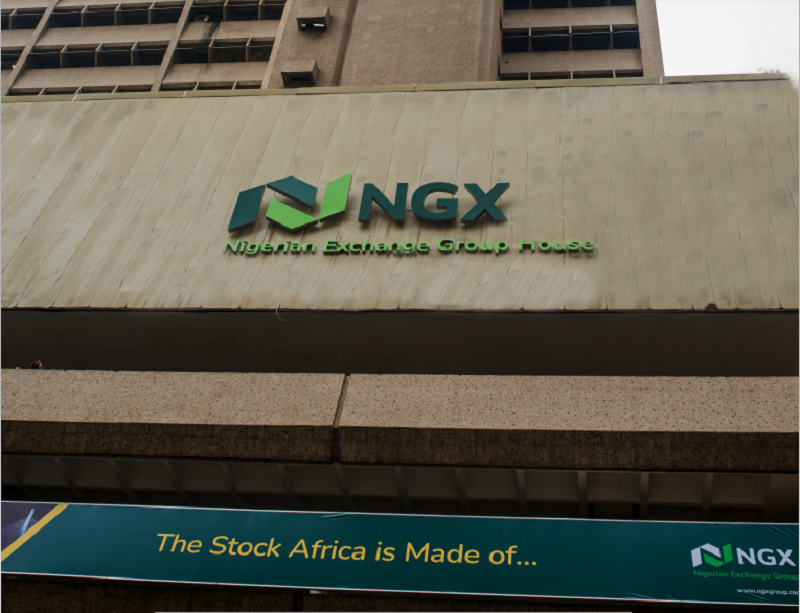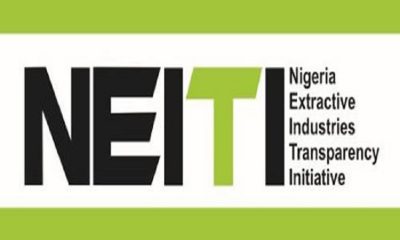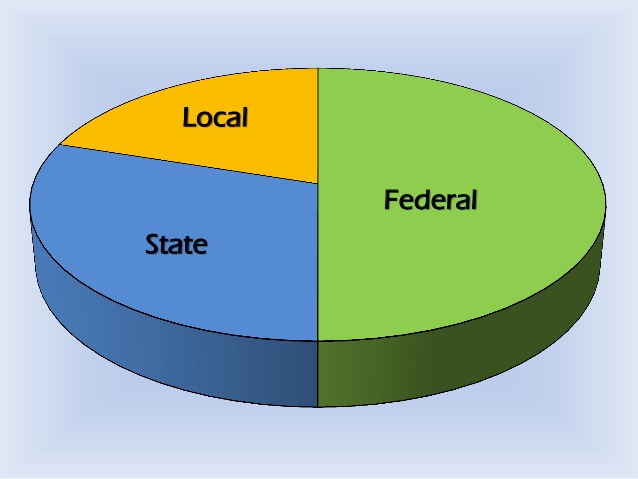Economy
NEITI: Federation Account Falls By Over N800b


By Modupe Gbadeyanka
The Nigeria Extractive Industries Transparency Initiative (NEITI) has revealed in its new report that disbursements from the Federation Account to the three tiers of government plunged by 30 percent in the first half of this year when compared to the corresponding half of last year.
In a report by NEITI titled ‘FAAC Disbursements in First Half of 2016 and Possible Implications,’ which was released yesterday in Abuja, it was explained that this sharp drop in revenues may negatively impact budget implementation across the three tiers of government this year, increase the size of budget deficits, and deepen the debt burden.
The report is the maiden issue of the NEITI Quarterly Review, a publication that will focus on issues around transparent and accountable management of revenues from the extractive sector.
Undertaken pursuant to Section 3(i) (j) of NEITI Act 2007, the report analysed disbursements by the Federation Accounts Allocation Committee (FAAC) in the first halves of last year and this year, and highlighted possible implications for public governance and management in the country.
The Nation reports that revenues shared to the three tiers of government were less by over N800 billion from N2.89 billion last year to N2.01 billion this year. This 30 percent decline reflected in lower allocations across the board.
The report stated: “Total disbursements to the Federal Government fell from N1.23 trillion in the first half of 2015 to N854 billion in the first half of 2016. This represents a 30.9 percent decline. Total disbursements to states fell by 30.5 per cent from N1.009trillion in the first half of 2015 to N701billion in the first half of 2016. For local governments, allocations from FAAC (Federation Account Allocation Committee) dropped by 26 per cent from N580.63billion to N429.43billion.”
The reasons for the plunge in allocations, according to NEITI, include the drastic fall in oil prices, lower oil production due to the activities of Niger Delta militants, and lower non-oil revenues as a result of lower taxes arising from contraction in government spending, fall in consumption and investment expenditures and decline in economic activities.
Citing statistical data by the Central Bank of Nigeria (CBN) showing the gap between oil and non-oil revenues and analysis of oil prices and its correlation to FAAC disbursements, the report pointed out that “the dependence of governments at all tiers on the oil sector highlights the vulnerability of public revenue to global oil market developments.
“On average, statutory allocations constituted 86 per cent of total disbursements to the Federal Government in the first half of 2016. Statutory allocations make up 71 per cent of total disbursements to state governments and 67 per cent of disbursements to local governments. Thus, the Federal Government relies more on statutory allocations than the state or local governments”.
NEITI however explained that the reason for the greater exposure of the Federal Government on statutory allocations is because of the country’ s revenue sharing fomular: the Federal Government is allocated 52.68 per cent of statutory allocations while the states and local government areas receive 26.72 per cent and 20.60per cent respectively. This imbalance is however adjusted by the fact that the Federal Government receives only 15per cent of Value Added Tax (VAT), while states and local government areas take 50 per cent and 35per cent respectively.
The Nation.
Economy
Nigerian Exchange Recovers 1.39% on Bargain-hunting

By Dipo Olowookere
The hunt for dividend-paying stocks rebounded the Nigerian Exchange (NGX) Limited by 1.39 per cent on Monday after a spate of sell-offs last week.
According to data, energy equities were the toast of investors yesterday, with the sector closing higher by 4.68 per cent when the closing gong was struck at 2:30 pm on the stock exchange.
Further, the industrial goods space appreciated by 2.49 per cent, the consumer goods index improved by 0.36 per cent, and the banking segment appreciated by 0.26 per cent, while the insurance counter lost 1.49 per cent to profit-taking.
As a result, the All-Share Index (ASI) gained 2,687.46 points to finish at 195,514.23 points compared with the 192,826.77 points it ended last Friday, and the market capitalisation grew by N1.725 trillion to N125.488 trillion from N123.763 trillion.
NGX Group, which announced a final dividend of N2 and a bonus share of 1-for-3 last Friday, was the best-performing equity on Monday after it gained 10.00 per cent to trade at N136.40.
In addition, Aradel Holdings appreciated by 9.99 per cent to N1,192.30, Union Homes REIT grew by 9.96 per cent to N76.15, Sovereign Trust Insurance advanced by 9.95 per cent to N2.43, and PZ Cussons rose 9.72 per cent to N79.00.
On the flip side, Custodian Investment ended as the worst-performing equity with a 10.00 per cent loss to settle at N61.20, McNichols shed 9.92 per cent to N7.63, Africa Prudential depleted by 9.75 per cent to N16.20, Chams crashed by 9.11 per cent to N4.09, and Neimeth depreciated by 8.23 per cent to N10.60.
The most active stock for the session was Fortis Global Insurance with 109.1 million units sold for N109.2 million, Japaul traded 54.7 million units valued at N218.9 million, UBA transacted 43.0 million units worth N2.1 billion, Access Holdings exchanged 30.7 million units for N799.4 million, and Oando sold 28.5 million units worth N1.3 billion.
In all, market participants bought and sold 789.9 million shares valued at N35.1 billion in 84,259 deals yesterday compared with the 823.8 million shares worth N34.8 million traded in 63,759 deals in the preceding session, indicating a decline in the trading volume by 4.16 per cent, and growth in the trading value and number of deals by 0.86 per cent, and 32.15 per cent apiece.
Economy
Naira Crashes to N1,378/$1 as FX Demand Outpaces Supply

By Adedapo Adesanya
The gradual fall of the Naira against the United States Dollar continued on Monday after it further lost N14.63 or 1.07 per cent to close at N1,378.02/$1 compared with the N1,363.39/$1 it was traded at last Friday at the Nigerian Autonomous Foreign Exchange Market (NAFEX). This was due to an insufficient supply of FX to meet the demand of customers at the currency market.
The Nigerian currency also depreciated against the Pound Sterling in the same market segment during the session by N9.65 to trade at N1,846.14/£1 compared with the previous trading day’s rate of N1,836.49/£1, and declined against the Euro by N3.76 to settle at N1,612.98/€1 versus the preceding session’s N1,609.22/€1.
In the same vein, the Nigerian Naira tumbled against the greenback in the black market yesterday by N5 to quote at N1,375/$1, in contrast to the previous value of N1,370/$1, as forex demand pressure gradually mounts.
The Central Bank of Nigeria (CBN) sold $200 million to boost the supply side and moderate demand pressures. For February, the CBN operated on both sides of the market, selling $225 million and purchasing $261.80 million. However, as FX demand continued to outpace available supply, pressure mounted further in the market.
Meanwhile, the research subsidiary of Coronation Merchant Bank said FX liquidity improved significantly last week. Total FX inflows into the official window rose to $1.07 billion from $648.20 million in the prior week.
Analysts maintain that the exchange rate is still trading within its projected N1,350 to N1,450 per Dollar band, dismissing panic concerns.
Meanwhile, the cryptocurrency market was bullish on Monday after macro shocks triggered repositioning across markets, and digital currencies benefited as some investors rotated back into risk.
After weeks of US military buildup and deadlocked nuclear diplomacy, the war with Iran increases the danger of a wider regional confrontation in a strategically vital economic corridor, adding to the risk gains for the market.
Ethereum (ETH) gained 5.5 per cent to trade at $2,050.07, Solana (SOL) appreciated by 5.2 per cent to $87.76, Bitcoin (BTC) added 4.9 per cent to sell for $69,322.35, Binance Coin (BNB) rose 3.2 per cent to $637.94, and Litecoin (LTC) expanded by 3.0 per cent to $52.39.
Further, Ripple (XRP) jumped 2.9 per cent to $1.40, Cardano (ADA) improved by 2.1 per cent to $0.2801, and Dogecoin (DOGE) increased by 1.9 per cent to $0.0946, while the US Dollar Tether (USDT) and the US Dollar Coin (USDC) remained unchanged at $1.00 apiece.
Economy
Oil Prices Surge as Strait of Hormuz Traffic Freezes Amid Iran-Israel Row

By Adedapo Adesanya
Oil prices surged 8 per cent on Monday as Israel and US strikes on Iran and retaliation by the Islamic Republic forced shutdowns of oil and gas facilities across the Middle East and disrupted shipping in the crucial Strait of Hormuz.
Brent crude rose 8.7 per cent or $6.36 to trade at $79.23 per barrel, while the US West Texas Intermediate (WTI) crude expanded by $7.8 per cent or 5.27 per cent to $72.29 per barrel.
Oil’s surge on the restart of trading after the weekend, however, was smaller than expected. On Sunday, some analysts had predicted oil would open above $90 a barrel and closer to $100.
The widening Iranian conflict is disrupting oil flows to several Asian countries as vessels are bottled up within the Middle East Gulf, and crude and transport costs are rising.
US President Donald Trump signalled the US-Israel military assault could continue for weeks, which could mean a prolonged disruption of traffic through the Strait of Hormuz, through which around 20 per cent of global oil output and a similar share of liquefied natural gas transits via ships from Middle East producers.
On Monday, Saudi Arabia shut its biggest domestic oil refinery after a drone strike. Qatar halted production of liquefied natural gas, and state-owned QatarEnergy was set to declare force majeure on LNG shipments.
The widening Iran conflict also left 150 ships stranded at anchor around the Strait of Hormuz after a seafarer was killed and at least three tankers were damaged.
The disruptions highlight the risks to Asia, the world’s biggest oil-consuming region, which sources 60 per cent of its oil from Middle Eastern producers. For instance, an extended disruption of the Strait would push oil prices higher and could cause supply shortages to China and India, the world’s biggest and third-biggest oil importers, forcing countries to tap stockpiles and reducing refinery operations.
In the view of the International Energy Agency (IEA) and other analysts, the oil market is well supplied with additions to supply from producers such as the United States, Guyana and the Organisation of the Petroleum Exporting Countries and its allies (OPEC+) expected to outpace global demand this year.
Eight members of OPEC+ agreed on Sunday to raise oil output by 206,000 barrels per day in April.
-

 Feature/OPED6 years ago
Feature/OPED6 years agoDavos was Different this year
-
Travel/Tourism10 years ago
Lagos Seals Western Lodge Hotel In Ikorodu
-

 Showbiz3 years ago
Showbiz3 years agoEstranged Lover Releases Videos of Empress Njamah Bathing
-

 Banking8 years ago
Banking8 years agoSort Codes of GTBank Branches in Nigeria
-

 Economy3 years ago
Economy3 years agoSubsidy Removal: CNG at N130 Per Litre Cheaper Than Petrol—IPMAN
-

 Banking3 years ago
Banking3 years agoSort Codes of UBA Branches in Nigeria
-

 Banking3 years ago
Banking3 years agoFirst Bank Announces Planned Downtime
-

 Sports3 years ago
Sports3 years agoHighest Paid Nigerian Footballer – How Much Do Nigerian Footballers Earn



















